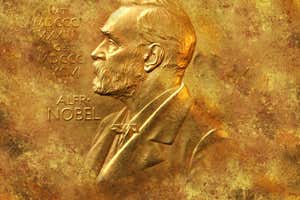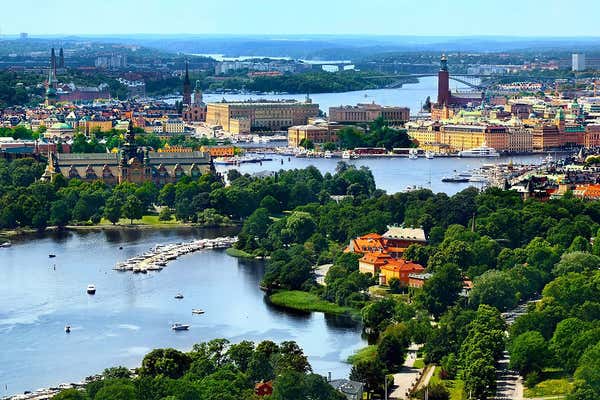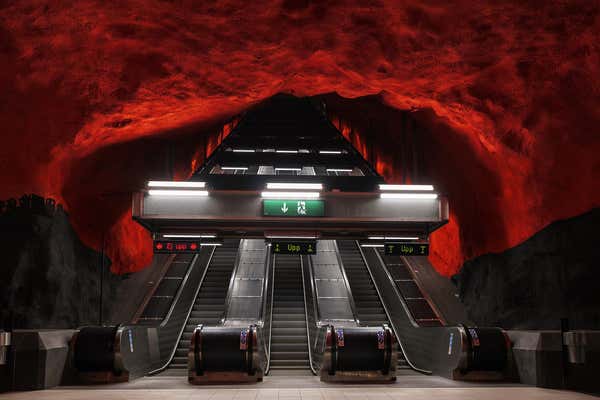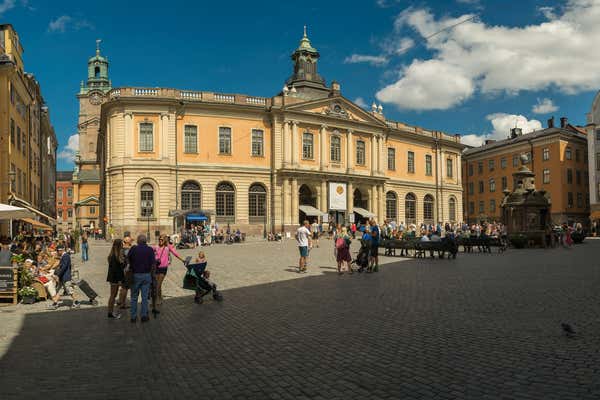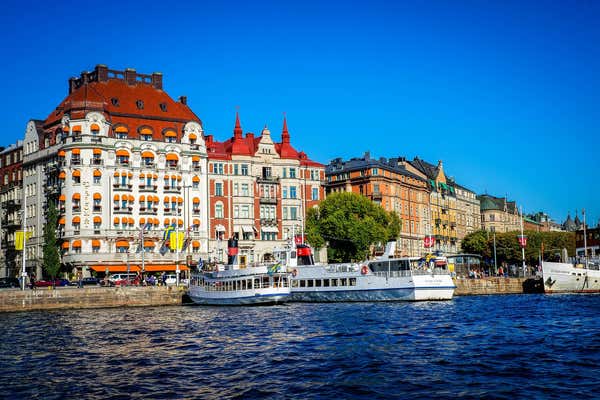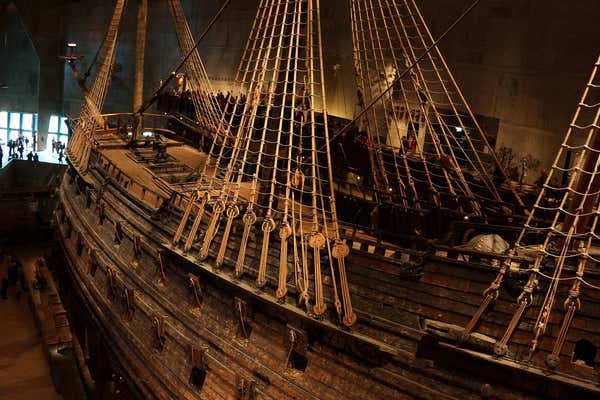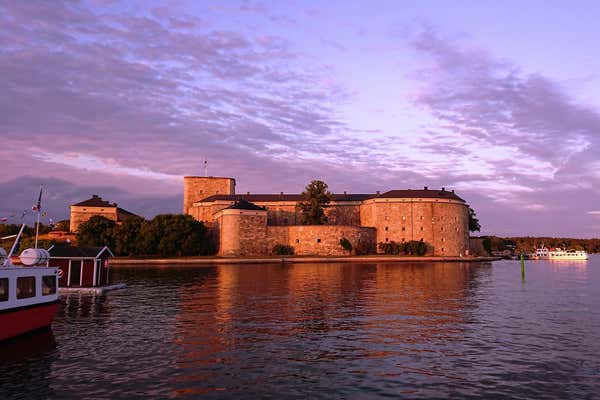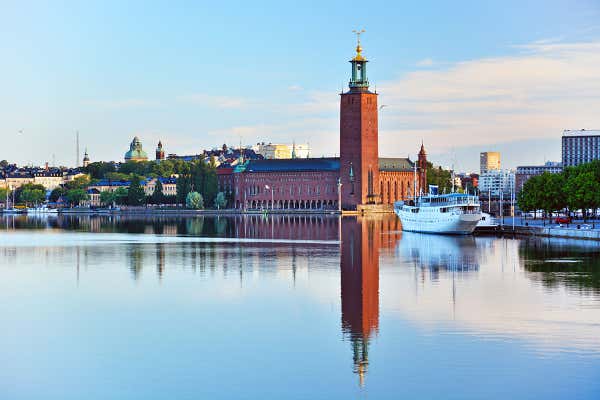Nobel's Stockholm: Celebrating science through space and time: Sweden
Register now and we will contact you soon with full tour details
September 2024 - 6 days
Register now at tours@newscientist.com and we will contact you soon with full tour details
Built across 14 of the 20,000 islands that shelter the city from the Baltic Sea, Stockholm is undoubtedly one of the world’s most elegant capitals. It is also a haven of scientific thought, boasting the likes of Alfred Nobel, Carl Linnaeus, Jons Jacob Berzelius and more. On this tour, you will explore the scientific heritage of Stockholm, past and present. You will meet experts and learn about Sweden’s contribution to botany, astronomy, physics, chemistry and medicine. Join New Scientist to explore the beauty of Stockholm and learn about the Noble prizes, which were was created to celebrate great achievements in science.
In partnership with Kirker Holidays
DAY 1: ARRIVE AND WELCOME TALK
Fly into Stockholm, where you will stay at the four star First Reisen Hotel, which has a great location overlooking the harbour on the edge of the atmospheric island of Gamla Stan. In the evening, New Scientist’s Richard Webb will give an introduction to Sweden’s scientific heritage and the significance of the Nobel prizes.
DAY 2: WALKING TOUR, CITY HALL & NOBEL MUSEUM, SCIENCE & TECHNOLOGY MUSEUM AND VINTERVIKEN BOAT TOUR
You will begin with a guided walking tour through the old town’s mediaeval maze of narrow streets ending at Stockholm’s City Hall, Ragnar Östberg’s landmark building on the shores of Riddarfjärden, which is where the annual Nobel Banquet is held. Walking up the many steps to the top of the tower is worth the effort, you will have a panoramic view of most of the city and its waterways. You will have a guided tour here before continuing through town and back into Gamla Stan and to the Nobel Museum.
Swedish inventor and industrialist Alfred Nobel (1833-96) established his prize to reward those who had “conferred the greatest benefit to humankind”. You will learn about the past laureates in the fields of natural sciences, literature and peace and the public outreach activities undertaken by the institution around the world, specifically looking at the research behind infection and pandemic that has taken place through history and its implications to today’s thinking before enjoying some lunch at the museum.
You will then continue to the National Museum of Science and Technology which celebrates Swedish scientists and innovators including Anders Celsius, Lars Magnus Ericsson and the Lundström brothers who created the world-famous safety match.
In the evening, you will visit Vinterviken bay by catching a boat from just outside the city hall. Home to Alfred Nobel’s old dynamite factory and blasting tunnels, the premises have now been turned into a restaurant where you can enjoy a dinner overlooking the bay.
In an evening lecture, Richard Webb will discuss some of the major scientific achievements celebrated by the Nobel prize.
DAY 3: CITY SOLAR SYSTEM, UNDERGROUND ARTWORK, NATURAL HISTORY MUSEUM AND SCILIFE BIOTECH LABS
Hidden in the city and across the country is the Sweden Solar System: sculptures, installations and lights that represent the planets and moons of our solar system at a scale of 1:20 million. It is the world’s largest model of a planetary system, and turns Sweden into a giant science exhibit in its own right. During this tour, you will find seven of these structures tucked away in various places, taking you as far out as Saturn (or at least a 20 millionth of the way there).
As you travel around today, you will also dip underground to visit different subway stations, famous for their artwork and all of them honouring science. Some examples you will see include Tekniska Högskolan station, celebrating the theory of gravity with a giant apple, and Universitetet station, tiled with panels outlining the travels of Carl Linnaeus, the famous botanist, physicist and zoologist. You will learn more about Linnaeus tomorrow.
From these stations, you will visit the underground reactor hall of Sweden’s first nuclear reactor, R1 which was used for the majority of Sweden’s nuclear research until the 1970s. Long since disused, the venue now hosts modern art and dance exhibits.
You will also stop by Vetenskapens Hus (the house of science) at the AlbaNova University Centre (where Venus is hiding). You will get the opportunity to meet experts from the department of astronomy and see Scharmer's Small Solar Telescope, which is a scale model of the world's second largest lensed telescope and one capable of showing images of the surface of the sun.
Continuing north, you will visit the Swedish Museum of Natural History and Cosmonova, which has nine permanent exhibitions about nature and the development of humankind under an 750-square-metre dome. The keen-eyed will discover the Earth and moon models from the solar system here.
From here, you will travel on to visit Mars in Mörby, before continuing to Solna, where the Sci Life labs are part of the university. Here, you will be given a behind-the-scenes guided tour of some of the facilities and learn about the ongoing research projects in biotechnology and how these are being applied in covid-19 research and other areas of biology.
You will return to the city centre having explored 300 years of science history and 1.3 billion kilometres of the solar system.
DAY 4: WALKING TOUR, VASA MUSEUM, NOBEL ABORETUM AND PIONEN DATA CENTRE
Enjoy the city coastline with this morning’s walking tour. Start at Sweden’s largest art museum, the recently reopened National Museum of Fine Art. Continuing east, you will visit the Nobel Park, an arboretum where nearly every species of tree that grows in Sweden can be found and studied, before continuing on to the Vasa Museum to learn about a time before Linnaeus, Nobel, or Celsius, and discover the dramatic sinking of the Vasa ship on its maiden voyage in 1628, and its modern day restoration in a specially designed museum. Here, experts will give you a guided tour of the impressive ship and discuss the science behind restoration.
Leaving the past behind, take the short ferry across to Södermalm and visit the data centre of Pionen. Beneath 30 metres of rock capable of withstanding a hydrogen bomb blast, the former bunker now has an eclectic design, with submarine engines for generators, waterfalls, fog, fish and tropical plants, similar to something out of a James Bond movie, and once used to house the wikileaks servers. You will have a tour of the facility and a discussion on the modern science around data before enjoying an afternoon of free time in the trendy Söder region of the city. You can explore the many restaurants, shops and bars nearby, or walk back through Gamla Stan and into the city centre.
DAY 5: UPPSALA, BOTANICAL GARDENS, ULRIKSDAL PALACE AND ARCHIPELAGO BOAT TOUR
Travelling to the nearby town of Uppsala, you will visit the botanical gardens of Carl Linnaeus, which were also his home and workplace of 35 years. In the orangery of the gardens, you will have a light lunch and a talk about the science behind botany. Saturn, the furthest planet you will see in the Sweden Solar System, can also be found nearby. On the way back to Stockholm, you will stop by Ulriksdal Palace, located in the leafy environs of the Royal National City Park. Tour the palace, as well as the exquisite 18th-century rococo theatre, Confidencen.
This evening, you will explore Stockholm’s archipelago and sample the city's food and drink scene. Walking through town to reach the ferry ports, you will pass through Berzelii Park, named after one of Sweden’s most famous chemists, Jons Berzelius. He is credited with developing the modern system of chemical notation in the 19th century. Ending at the nearby docks, you will head out on to the waves as you enjoy an evening boat trip through the archipelago. Visit Vaxholm, the fortress island designed to defend Stockholm, and enjoy a traditional crayfish party before returning as the sun sets on the tree lined coasts. Your ferry will drop you off at the perfect location for either continuing your evening by exploring one of the many bars and cafes or taking a scenic walk past the palace grounds and back to your hotel.
DAY 6: DEPART STOCKHOLM
Depart for the airport this morning. As a final port of your journey through the science of Sweden, Arlanda Airport is the home to Jupiter in the Sweden Solar System. Bid farewell to Stockholm as you embark on your onward journey.
